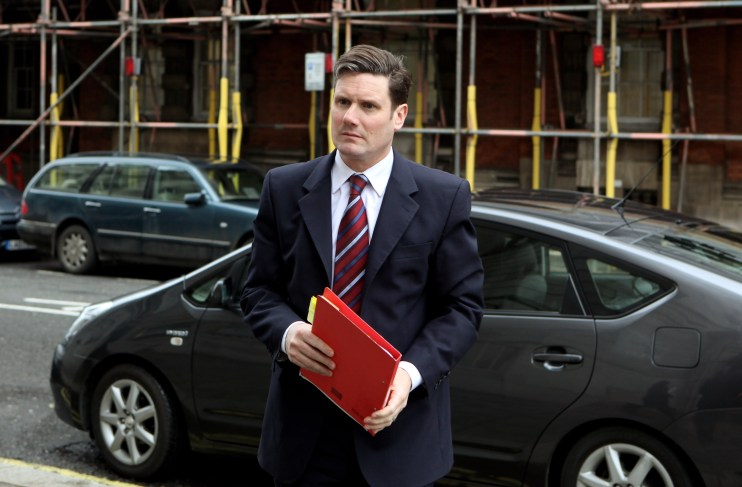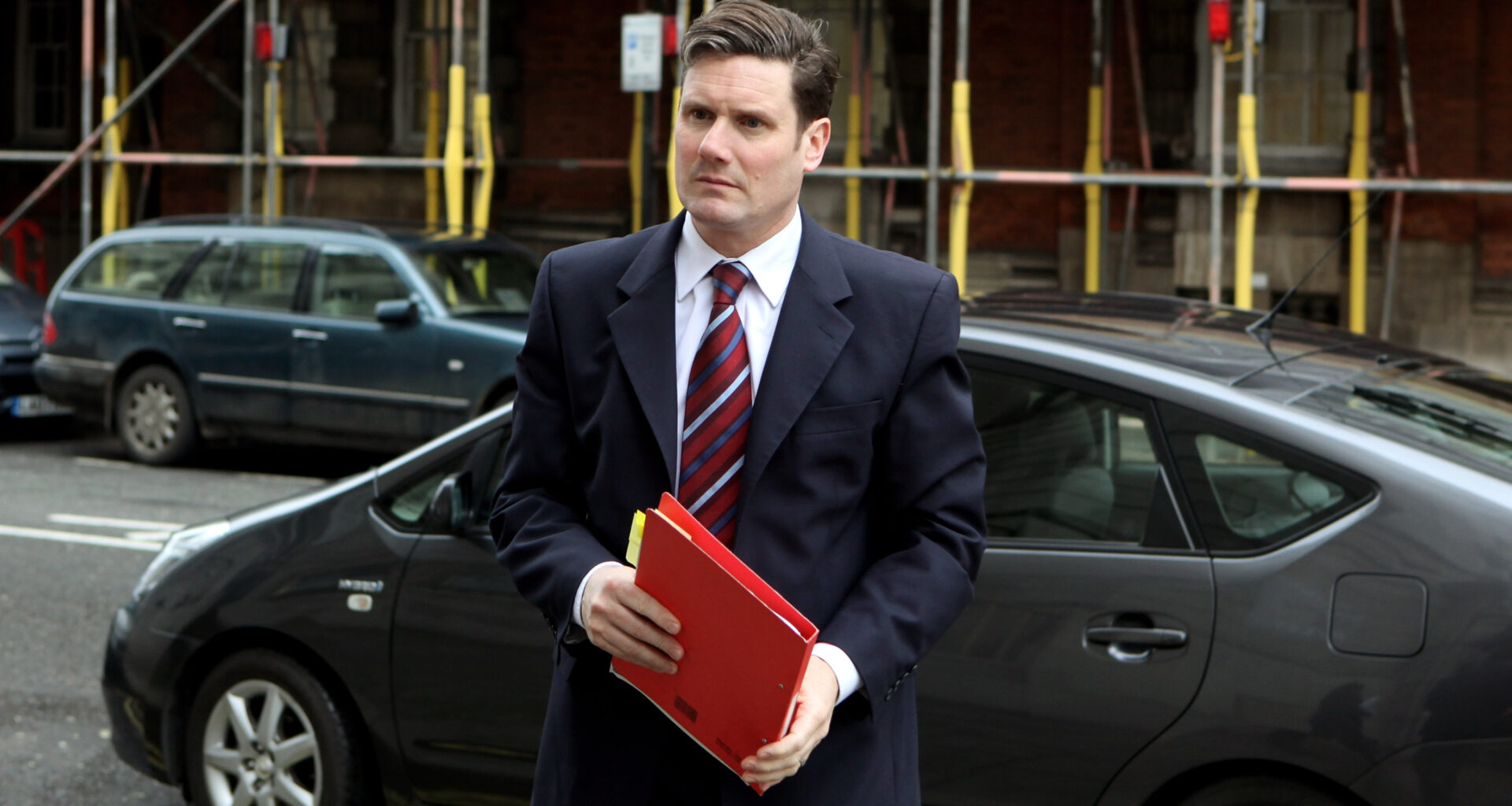Wednesday 05 November 2025 5:50 am
| Updated:
Tuesday 04 November 2025 4:14 pm
Share
Facebook Share on Facebook
X Share on Twitter
LinkedIn Share on LinkedIn
WhatsApp Share on WhatsApp
Email Share on Email
 Keir Starmer in 2010 (Photo by Oli Scarff/Getty Images)
Keir Starmer in 2010 (Photo by Oli Scarff/Getty Images)
A lot is written about how we don’t know the true Keir Starmer, but this article really does show his instincts – which are far more radical than widely understood, says Simon Clarke
“Give me the child and I will show you the man” is a saying of the Jesuit order. While I wouldn’t necessarily agree that you can see in a seven year old the adult they will become, I think most of us certainly accept that by age 32, you can tell someone’s adult personality and outlook.
Hold that thought. Then let’s turn to one of the fundamental dividing lines in British politics: the future of the European Convention on Human Rights (ECHR). This is the frontline of the battle to stop the small boat crossings that are bending our politics out of shape. Nothing better embodies the failure of the British state than its inability to enforce the border and remove illegal entrants; nothing is doing more to drive the rise of Reform.
In Manchester last month, Kemi Badenoch committed that, if returned to government, the Conservatives will leave the ECHR to curb judicial activism and “to protect our borders, our veterans and our citizens”. The Conservatives favour a return to common law protections of civil liberty, while Reform plans to introduce a British Bill of Rights. Both parties are clear that judges adopting ever more expansive interpretations of the ECHR to make it almost impossible for the government to remove illegal migrants must end.
On the other side, of course, stand Labour. Their support for the ECHR is strong – but quite how strong isn’t appreciated. And here we come back to the views of a 32 year old barrister and rising star called Keir Starmer. Blowing off the dust, they give us a powerful insight into our Prime Minister.
Does Starmer believe in property rights?
Exactly 30 years ago this autumn, in the journal Socialist Lawyer, Starmer wrote an article about Tony Blair’s commitment to incorporate the ECHR into UK domestic law, via what would become the Human Rights Act 1998. His commitment to action could not have been more emphatic: “the suggestion that we, as socialists, should now set our face against the adoption of any form of domestic bill of rights is frankly to hack away the very foundation of this new legal order”.
Why such strong support? Reading his article, it becomes clear that what Starmer supports is not simply a legal text enshrining fundamental liberties like the right to life or freedom of assembly. Instead, he argued strongly that Labour should adopt a maximalist approach to champion “the struggle for social and economic rights alongside fully developed civil and political rights”. He noted approvingly legal theorists calling for the scope of human rights to be expanded to include jobs, food and housing – “the bone of contention with Tony Blair should not be whether or not a bill of rights is enacted at all, but whether the equality provisions within it will be fully developed.”
Starmer noted approvingly legal theorists calling for the scope of human rights to be expanded to include jobs, food and housing
A lot is written about how we don’t know the true Keir Starmer, but this article really does show his instincts – which are far more radical than widely understood. He doesn’t want to curb the scope of human rights law; ideally he would like to see it expanded so that “social rights” like work, housing and healthcare become legally enforceable human rights, rather than policies subject to democratic control in Parliament.
I’ll close where Sir Keir signed off, in a chilling warning that should ring and clear ahead of the Budget and the difficult economic decisions of the years ahead. “We could do worse than to begin by dismantling those common law rules governing the property entitlements of private parties which for almost a thousand years judges have been happy to regard as pre-political norms.”
Do not say we haven’t been warned.
Sir Simon Clarke is the Director of the centre-right thinktank Onward
Read more
Thousands march through London to protest digital ID plans
Similarly tagged content:
Sections
Categories
People & Organisations

